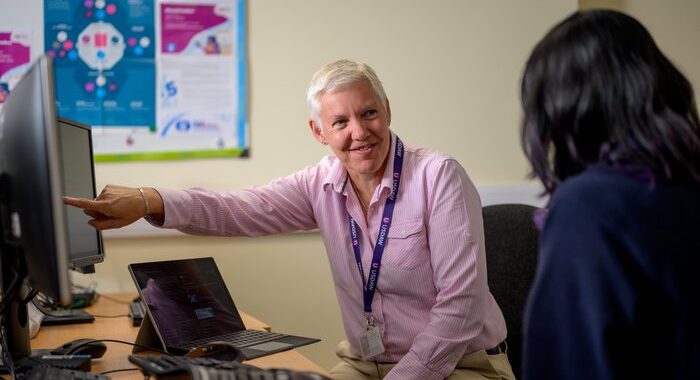How digital care plans are helping health and care services in Tameside respect the wishes of people with dementia
Case study by Chris Pimlott, Mental Health & Learning Disabilities Commissioning Manager (Tameside GMIC) and Head of MH Strategic Commissioning NHS Greater Manchester Integrated Care.
About the Greater Manchester dementia wellbeing plan
The Greater Manchester dementia wellbeing plan was developed by Dementia United who collaborated with experts by experience to ensure that the content of the plan focused on the priorities for people living with dementia and carers. It promotes personalised planning conversations with people living with dementia and carers about their needs and wants. The plan supports an improved standard of care planning for people living with dementia and facilitates sharing across the system.
Establishing a process for annual care reviews isn’t easy when primary, community and social care multi-disciplinary teams are stretched thin and information is scattered across different systems, or on paper, making it difficult to compile a holistic view of care.
Digital dementia wellbeing care plans in the GM Care Record have made it much easier to schedule annual reviews as multiple system information is compiled into one comprehensive care plan, accessible by everyone involved in a person’s care.
Preventing hospital admissions
Before the digital dementia wellbeing care plan, if a person with dementia came into the emergency department, staff would be reluctant to discharge them without proper investigation. This meant that many people with dementia were at risk of deteriorating rapidly after being admitted to a ward. Access to a digital care plan would have enabled staff to see that the patient may simply need rehydration rather than being admitted. It would also show that the patient has a robust community support plan in place indicating that the clinical team could facilitate discharge directly from the emergency department.
In Tameside, we uploaded over 600 digital dementia wellbeing care plans to the GM Care Record between January and March 2024. Although we’re still in the early stages, we expect to see significantly fewer people with dementia ending up in hospital beds after presenting at the emergency department.
Accessing a digital care plan can support health professionals to more proactive in minimising the risk of a hospital admission by analysing early warning indicators, such as reduced appetite or increased agitation, and prescriptions to see if there are ways to improve the formulation of care.
Respecting the wishes of people with dementia
A huge benefit of the digital dementia wellbeing care plan is allowing people with dementia to die with dignity in a place of their choosing. Patients and carers can contribute to dementia wellbeing care plans via the new My GM Care app which completes the picture of care for each patient. Emergency department staff can now see medical and care history, diagnoses, prescriptions, and personal preferences, including advance directives, so it is immediately clear where an end-of-life patient wants to be and their wishes are respected.
Not letting ‘perfect’ get in the way of ‘good’
The GM Care Record digital dementia wellbeing care plan isn’t yet perfect. We have to dual input information in two systems currently and the system needs to develop to be able to pull this information through from existing clinical systems. We acknowledge we’re at the beginning of a region-wide transformation to ensure people with dementia have their wishes respected and receive appropriate, high-quality care from everyone involved, especially when they cannot articulate their needs themselves.

